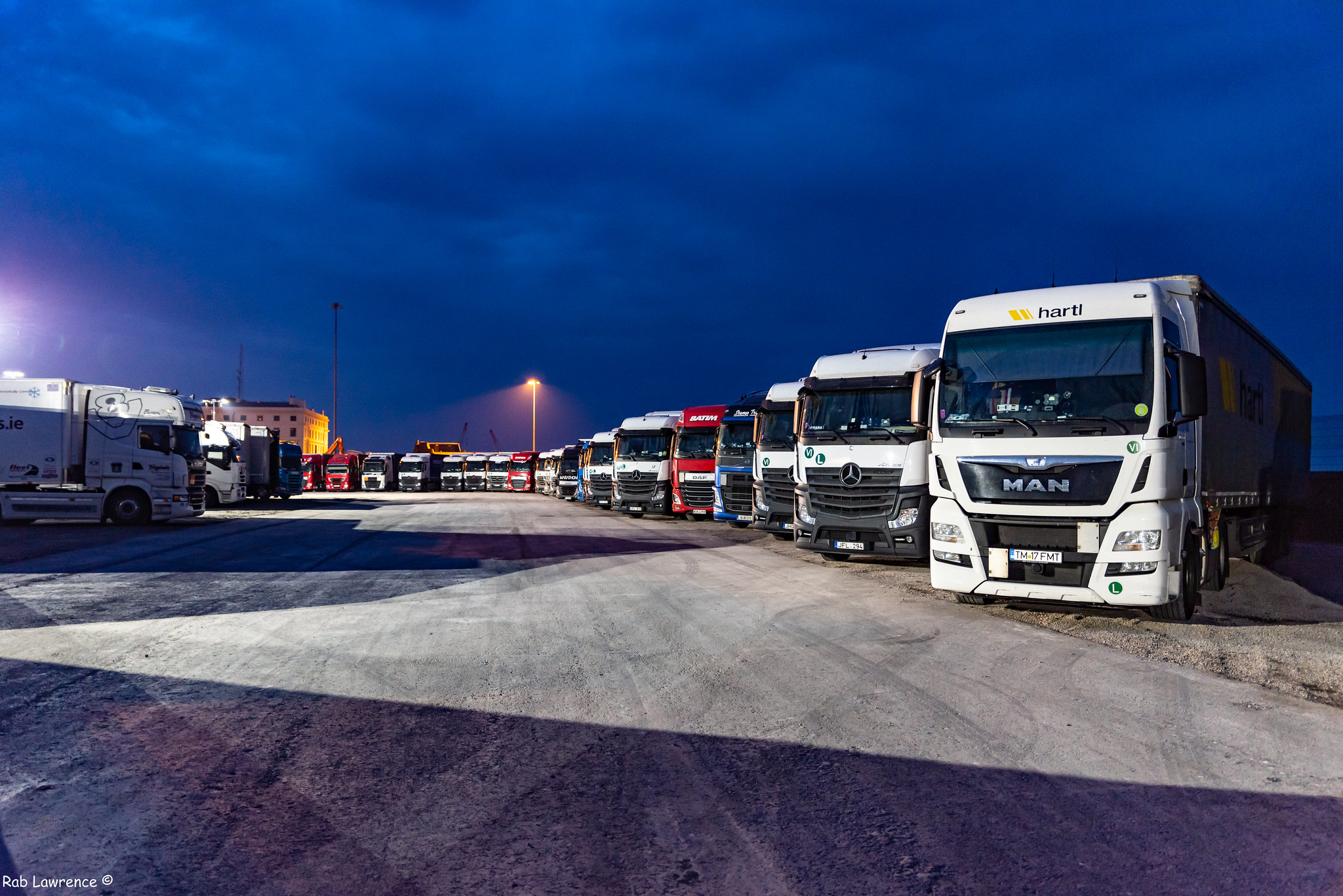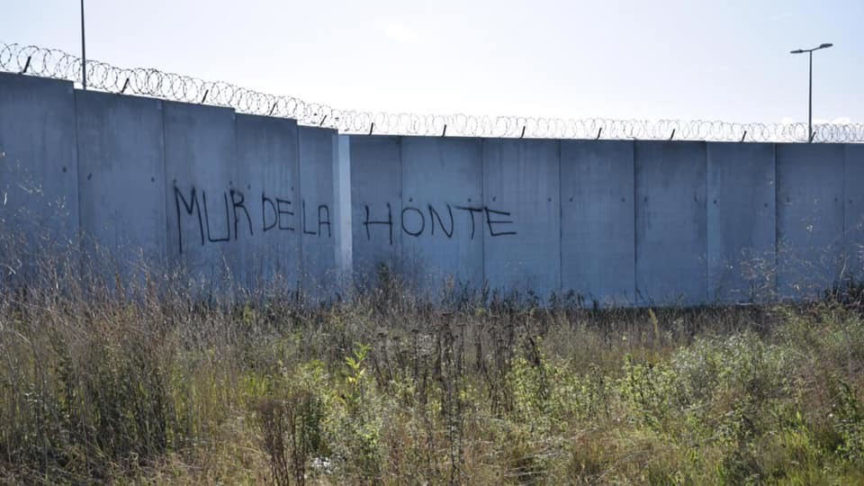Essex Lorry Deaths: Now We Know What Happened, We Must Start a Radical Conversation on Immigration
by Abby Meadows
8 November 2019

All 39 people found frozen to death in a refrigerated lorry container in Essex last month have now been identified. Over the past fortnight, more details of the tragedy have gradually emerged. The dead – 31 men and eight women – are believed to have been brought from Vietnam to the UK by a network of people smugglers working across borders. It’s likely the dead hoped to find work in the UK and to send money back to their families. In reality it’s possible some of the group would have been forced to work in nail salons or cannabis farms for no or low pay.
For many the disaster came as a stomach-churning shock. For some, like me, who have witnessed the intense violence of our borders firsthand in northern France, the news was, as the Refugee Council’s chief executive Maurice Wren put it, “depressingly predictable and avoidable”. In Calais, where I worked with charity Refugee Info Bus, deaths at the border are a horrifically regular occurrence.
But this tragic incident isn’t just about borders. It’s also about the violence of poverty, and the risks people are forced to take to in search of a better life.
This painful disaster has highlighted the vulnerability of precarious workers and the absence of safe and legal routes into the UK. It has also drawn attention to global inequality and presented an opportunity for society to address some of the prejudices it holds against those it considers ‘economic migrants’ rather than refugees. With a general election approaching, it’s more crucial now than ever that we have a radical conversation about immigration.
Decriminalise all migration to prevent further tragedies.
Refugees and economic migrants are often pitted against one another. While far right Tories like Boris Johnson and Priti Patel peddle racist tropes that paint both refugees and economic migrants as equally unworthy of a place in the UK, liberals tend to distinguish between ‘deserving’ refugees and ‘undeserving’ migrants.
My experience working with displaced people in northern France taught me that making such an extreme distinction between refugees and economic migrants is a false dichotomy.
If drought in Darfur destroys your livelihood and the only options you have are to join a militia or to flee, are you an economic migrant or a refugee? The politics and assumption of worthiness behind each term are loaded and unhelpful – and also don’t reflect the complex reality.
Navigating Fortress Europe is fraught with deadly challenges. Our border is pretty much impenetrable if you don’t have the right passport, so dangerous, illegal journeys with smugglers – or traffickers – are often the only route into the UK. Few people consider poverty a legitimate cause of migration, yet it is evidently enough to drive people to desperate measures like hiding in the back of a refrigerated lorry.
Poverty is violent – violent enough that it forces people to move in search of decent lives and the ability to provide for families left behind.
The hostile environment kills.
Whilst both Johnson and Patel expressed sadness at the deaths, their perfunctory words were at odds with the anti-migrant and refugee stance they have previously taken. Both are part of a government that purposefully engineered the ‘hostile environment’ in a deliberate attempt to make the UK inaccessible and unliveable for most migrants.
This year alone has seen £44.5m invested in securitisation at the UK-France border in Calais, raising the total over the past three years to £100m, according to a Press Association report.
In northern France I have seen the walls, the fences and the heavy police presence that UK taxpayers fund. And I have seen how this policy degrades and dehumanises displaced people who have trudged through the underbelly of Europe, being rejected from seeking asylum in various countries along the way.
If Johnson and Patel don’t agree with the consequences of harsh borders, then they should change their policies, which have led to such inevitably tragic outcomes.
To avoid more deaths, our government must stop criminalising migrants, whether they are victims of war, persecution or victims of poverty.
Open borders and global equality are needed to prevent more tragedies.
Journalist Gary Younge recently called for an end to all immigration controls, declaring: “it is a fact, rarely stated but generally acknowledged and accepted, that the global poor should not be allowed to travel.”
Open borders would increase protections for workers travelling between countries. It would mean they didn’t feel they needed to pay to be smuggled over borders hidden in lorries. As journalist Afua Hirsch puts it: “As long as we accept this migrant labour coming without a legal route, we are being complicit in the risks that people are having to take to get here.”
It would also make it easier for them to demand rights in the country where they settled, undermining exploitative employment practices.
However, whilst people smuggling and human trafficking industries are propped up by hostile borders that people cannot cross independently, it is worth recognising that even open borders would not necessarily end the latter. As long as there is massive global inequality and extreme poverty, people will want to move from place to place in search of work and will not have the resources to do so, and other people will take advantage of this.
The desperation of people trapped in poverty who accept dangerous, precarious work is a product of a global capitalist system with no safety net for the majority of the world’s population. A radical readjustment of the global economy is needed to protect all workers.

In Calais, the immense grey walls UK taxpayers fund are a visible hard border, a reminder to people that we don’t regard their safety as important.
Here the relentless circle of violence continues.
At the end of October, around 40 people met outside the Parc Richelieu in Calais to commemorate the 39 lives lost. This is tradition in Calais, when any person attempting to cross the border dies. Since the start of 2019, there have been eleven such gatherings. The last memorial took place only a week before, when two Kurdish men, both in their twenties, were found dead on the coastline.
On 31 October, a Nigerian man was found dead in his tent in Calais. He had died from carbon monoxide poisoning, presumably from a nearby fire lit for warmth.
It’s time for a radical conversation about migration – about how we treat people trying to enter the UK or in the country illegally, whether they society considers them refugees or economic migrants.
It is time to to acknowledge the brutality of global capitalism and open the borders.
Abby Meadows was the coordinator of Refugee Info Bus in northern France for six months this year.